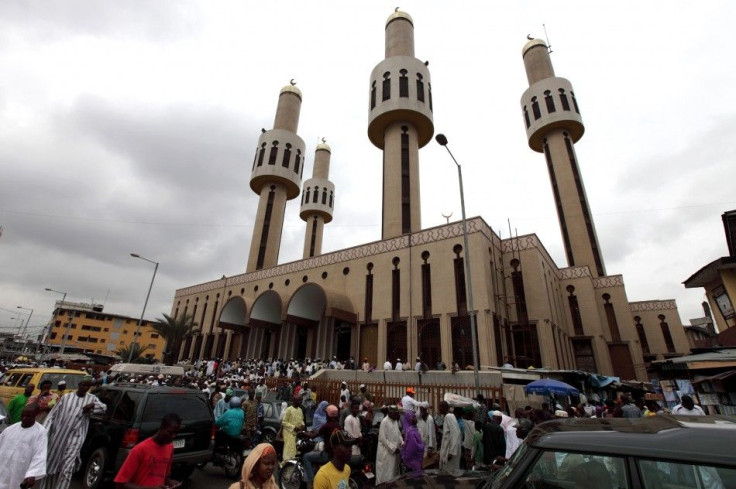Nigerian Christians Attack Mosque: Can a Country Divided Stand?

A mosque and an Islamic school were set on fire in Benin City, Nigeria on Tuesday. Done during the chaos of the a nationwide strike, a mob of people attacked the religious institutions, killing one person and injuring another 10.
Police arrested 10 people following the attack, which was the second on a mosque in the city this week.
A year of deadly religious tensions sparked by the Muslim rebel group Boko Haram has swelled to new, terrifying levels in the past few weeks. A slate of Christmas Day church bombings by Boko Haram killed nearly 50 Christians around Abuja, and invited the possibility country could slip into a religious-sectarian war that would have dire consequences.
Following the Christmas attacks, an Islamic school was attacked in the Delta State, and church leadership said that Nigeria's 76 million Christians are ready and willing to protect themselves with equal force.
The consensus is that the Christian community nationwide will be left with no other option than to respond appropriately if there are any further attacks on our members, churches and property, said Ayo Oritsejafor, the leader of the Christian Association of Nigeria (CAN).
I will not encourage Christians to revenge, but Christians should protect themselves... anyway you can. Why should anybody come and kill you in your house? Protect your place of worship, protect your property; it is very important.
Boko Haram was quick to respond to the threats. Days later, gunmen stormed a church in the city of Gombe, and a town-hall meeting for a Christian tribe in the Adamawa state was attacked. Nearly 30 people died in a span of three days.
The burning of the mosque in Benin City may have been the next battle in a war that is about to hit Nigeria hard. The fact that the attacks occurred during a popular protest against the government's removal of a gas subsidy suggests that some Nigerians have blamed their frustrations on opposing religions rather than a corrupt government.
When you get a situation where a bunch of people can go into a place of worship and open fire through the windows you've reached a certain dismal watershed in the life of that nation, Nigerian writer and Nobel laureate Wole Soyinka told the BBC.
Fearing further violence, some 7,000 northern Muslims sought refuge in police stations and army barracks in Benin City after the recent attacks.
North against South
Nigeria is a nation divided. The country is split evenly by religion and by geography. Half the population -- about 75 million people -- are Muslims and nearly all of them live in the northern states. Christians make up the other half (although about 1.4 percent of Nigerians are listed as being other religions) and most of them line in the south. There is certainly some overlaps, but Christians living in the north are generally called southern Christians, an indication that they are considered outsiders even if their families and tribes have been in the north for generations.
The capital city of Abuja is located geographically and demographically in the dead center of the country; there are both mosques and churches across the Federal Capital Territory. This seems especially important in the city that houses the government. However, the religion of power is as consequential as the power of religion in Nigeria.
Government attempts to placate the decades-old tensions have backfired. The religion of the past four presidents has switched back and forth, a system that worked well enough. Jonathan, a Christian, took over for the Umaru Musa Yar'Adua when the Muslim president died in office. But Jonathan was not expected to run for president again, and although he didn't serve a full term, Muslims thought he needed to give way to a northern politician.
However, Jonathan ran and won in what half of the country felt was a stolen election. After his swearing in in April 2011, nearly 800 people died in riots and religious violence in Nigeria. It was the bloodiest election since the country's military-era and it gave new life to Boko Haram, which had been founded around 2002 by Mohammed Yusuf but remained relatively dormant for years.
Stopping Boko Haram
The elections bred violence and killings across the north. Boko Haram -- whose stated goal is to turn Nigeria into a Muslim state -- began attacking government workers, police stations, civilians in bars and then religious institutions further and further south.
Jonathan created a Joint Task Force between the military and the police in an attempt to stop Boko Haram, sending troops into northern cities and imposing a curfew in some states.
But many citizens and religious groups have condemned the militarized effort, which has used some controversial tactics to little effect. Instead, spiritual leaders are trying to foster dialog between Muslims and Christians, both of whom are suffering at the hands of extremists.
I encourage Nigerians to work with government because when we work together collectively, we will get over it. The terrorists are human beings, they are not spirits, they live with us, they dine with us. We know them, people know them, said Nigeria's Islamic spiritual leader, the Sultan of Sokoto, after a meeting with Jonathan.
This terror attack is new to us but I can assure you that we are doing our best to make sure that we get over it.
© Copyright IBTimes 2024. All rights reserved.





















